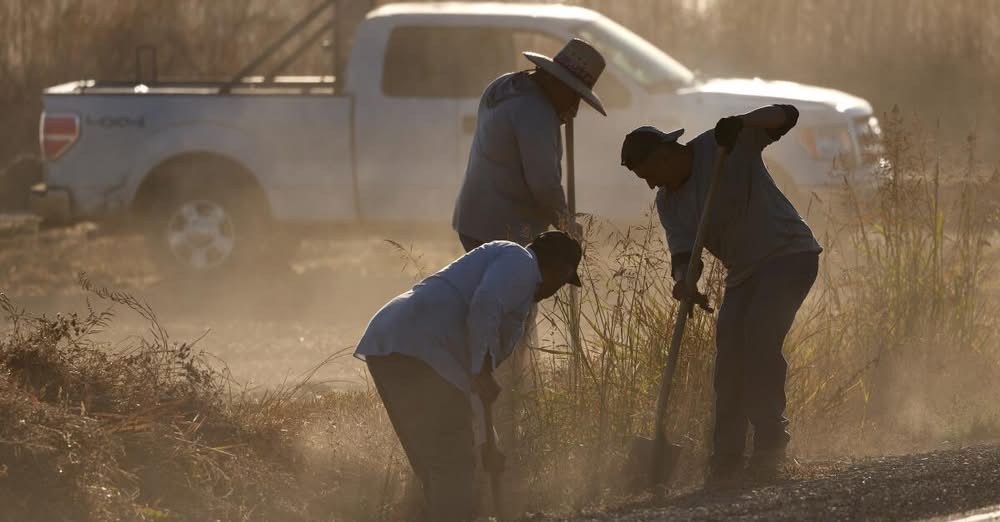Unconscionable! … “20 years after California enacted a landmark heat safety law, farmworkers across the state are still getting sick and sometimes dying from preventable heat illness.
The law “is failing because of a lack of enforcement. It’s not doing what it was intended to do,” said state Sen. Dave Cortese (D-San Jose), a former farmworker who carried legislation last year that would have made it easier for farmworkers to receive workers’ compensation if they were stricken by heat illness on the job. The measure was vetoed by Gov. Gavin Newsom. “It is the kind of thing that should be keeping legislators up at night. People are dying.”
The enforcement lapses come at a time when farmworkers — many of whom lack legal status and fear deportation — are already hesitant to voice complaints about working conditions, fearful that employers could retaliate by reporting them to immigration authorities. It is estimated that more than half of California’s approximately 350,000 farmworkers are undocumented.
A 2022 study by the UC Merced Community and Labor Center found that many farmworkers were still laboring without the protections. Of more than 1,200 workers surveyed, 43% reported that their employers had not provided a heat illness prevention plan and 15% said they had not received heat illness prevention training.”
![]()
![]()


